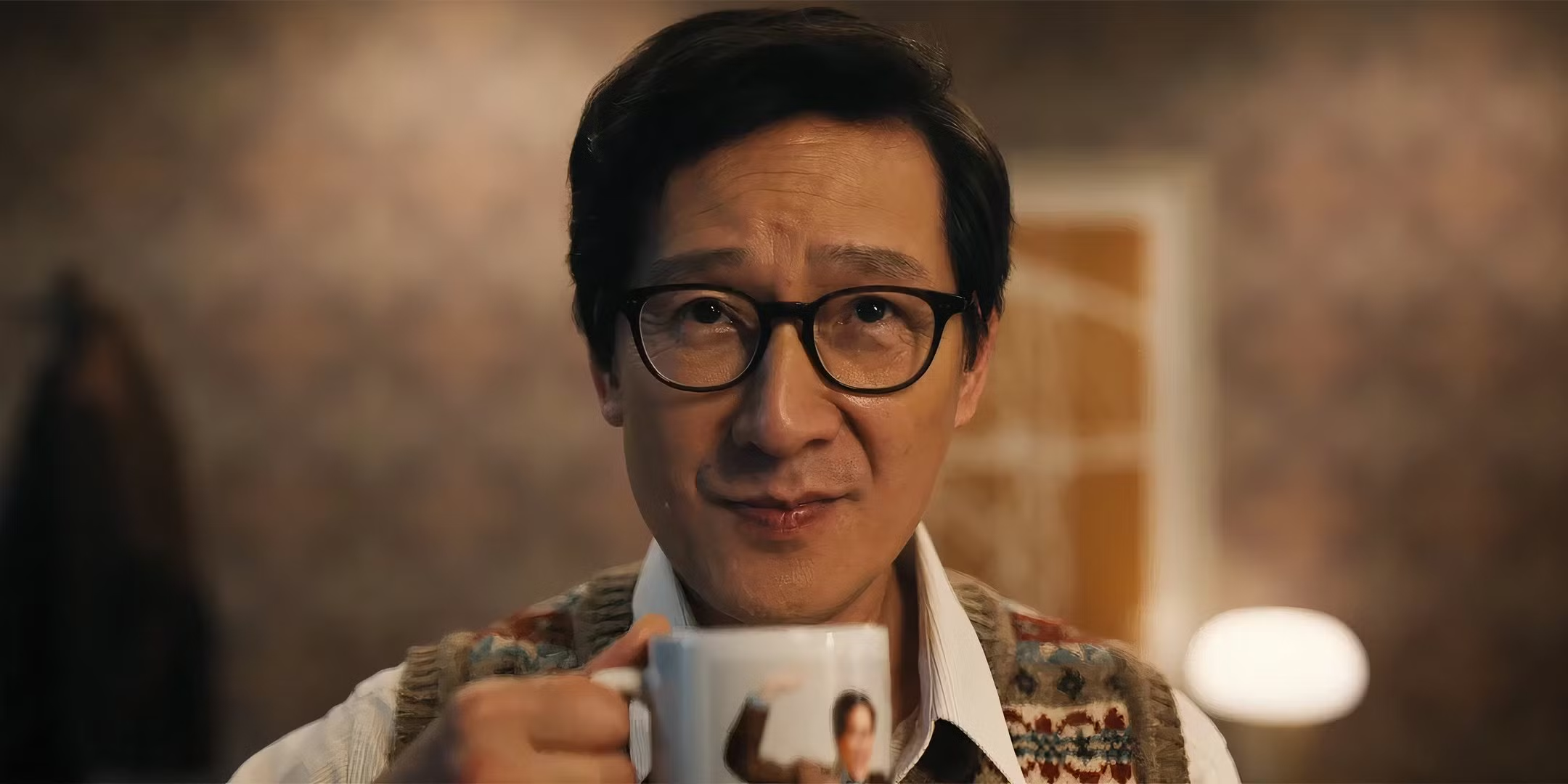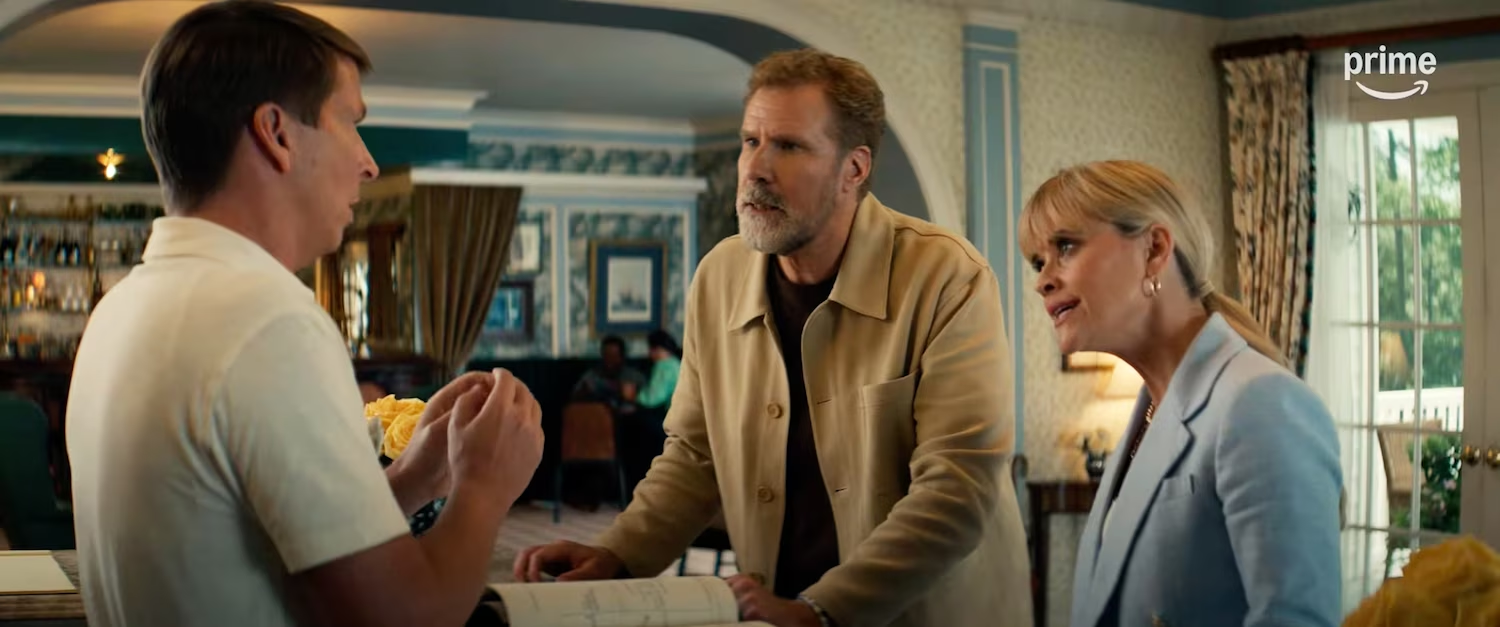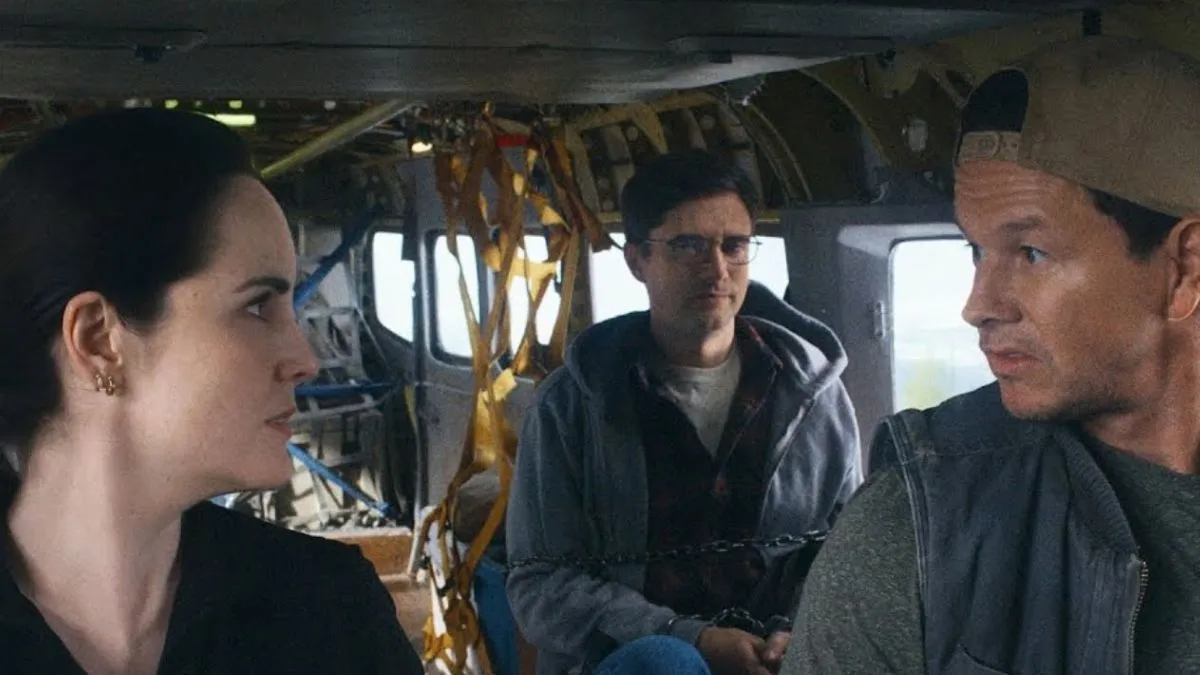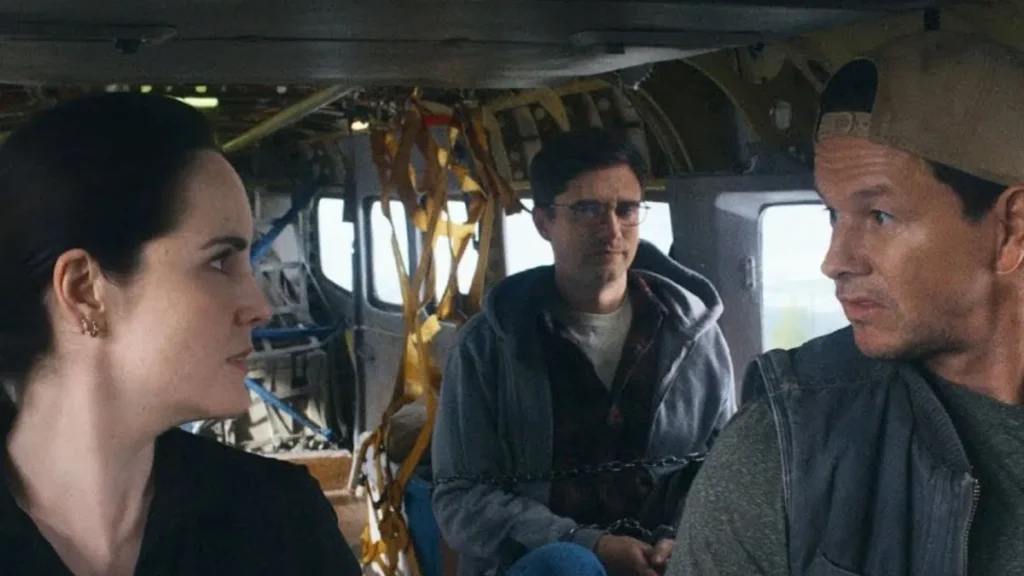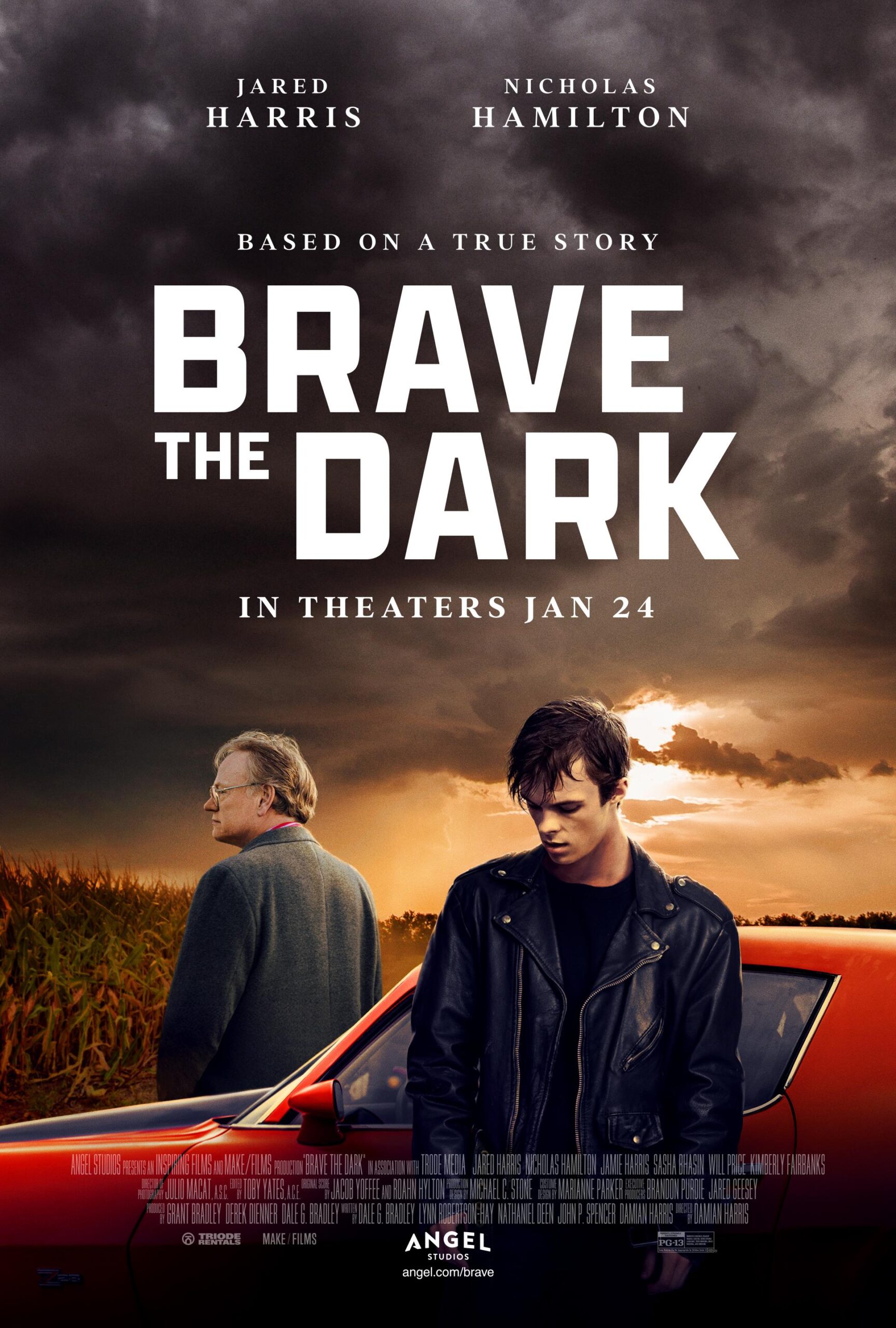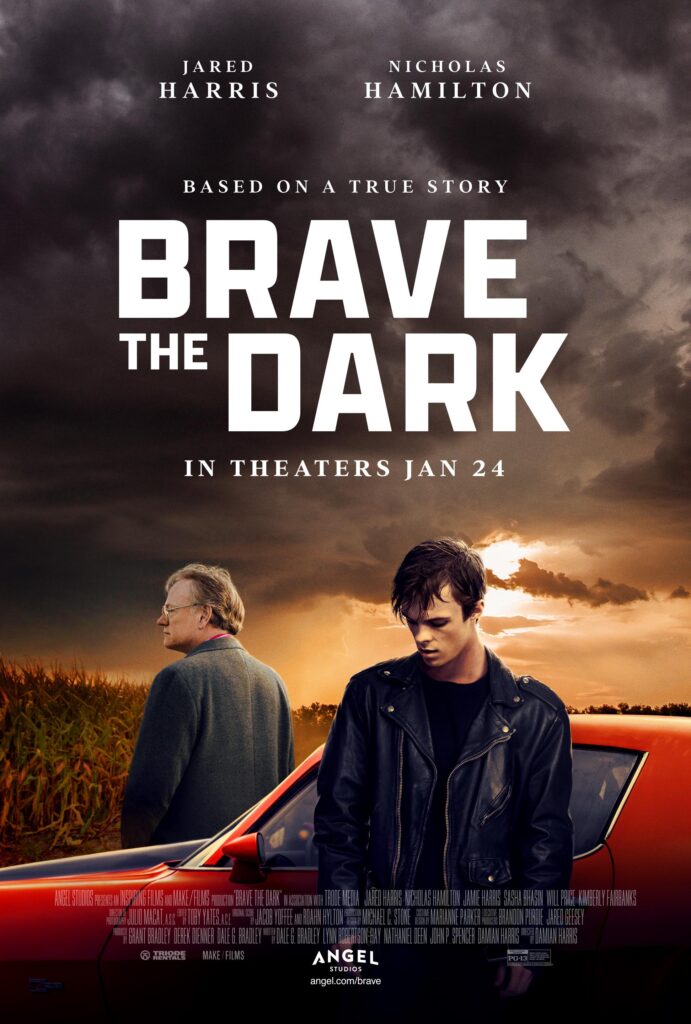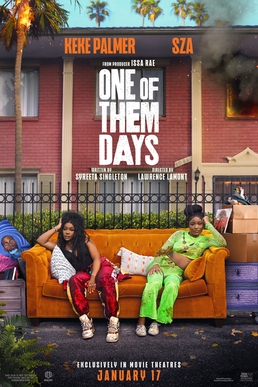Love Hurts
Posted on February 6, 2025 at 12:52 pm
B| Lowest Recommended Age: | Mature High Schooler |
| MPAA Rating: | Rated R for strong/bloody violence and language throughout |
| Profanity: | Constant very strong language |
| Alcohol/ Drugs: | None |
| Violence/ Scariness: | Constant peril and violence, many graphic and disturbing images, characters injured and killed, knives, guns, taser, and a lethal straw |
| Diversity Issues: | Diverse characters |
| Date Released to Theaters: | February 7, 2025 |

As the poem goes, in this action/comedy/romance starring two Oscar winners, the character played by Ke Huy Quan is bloody but unbowed. As the old Timex commercial goes, he takes a licking and keeps on ticking.
Quan plays mild-mannered realtor Marvin Gable, whose passion is finding homes for his clients. He tells them how much he loved moving into his home and how he wants to create that same feeling of joy, comfort, and safety for them. When he wins the regional realtor of the year award, it brings him to tears. He says that his work as a realtor has given him meaning
And then Marvin receives a handmade valentine that simply says, “I’m back.” Based on this and so many, many other movies, including the recent “Back in Action,” plus “The Family Plan,” “Spy Kids,” and even Viveca A. Fox in “Kill Bill,” you’d think every block in suburbia has a neighbor with a history as an assassin or spy.
As the realty firm’s Valentine’s Day party goes out outside his office door, Marvin is visited by someone from his past, a poetic hitman known as Raven (Mustafa Shakir, making a strong impression in action scenes and more sensitive moments as well). A local gangster named Knuckles (Daniel Wu), who happens to be Marvin’s brother, Alvin, has sent a bunch of tough guys after Marvin. Knuckles thinks Marvin can lead him to Rose (Ariana DeBose). Marvin was ordered to kill her for stealing from Knuckles, but instead he told Knuckles Rose was dead and let her escape. Knuckles has also received a valentine, and he wants Rose captured alive. He does not know that his top henchman, Merlo (Cam Gigandet) wants Rose dead so she cannot reveal that he was the one stealing from Knuckles.
All of this means that we are in for one bone-crunching literal back-stabbing (and other stabbing of body parts, too, including a hand and an eye) after another, plus lots of kicking, punching, bone-crunching, body part slicing, knives, darts, guns, a taser, a giant fork and spoon (production designer Craig Sandells really nails the Pinterest aesthetic staging of homes for sale), and, surprisingly, a lethal boba tea straw. The poster boasts that this film is from the producers of “Nobody” and “Fright Night,” and Quan says this is a tribute to the Hong Kong action films of Jet Li, Jackie Chan, and his other favorites, which means it is bloodier and more graphic than most action comedies. A lovable character is murdered. So is an innocent bystander who tries to help.
Quan and DeBose have endlessly appealing screen presences and the fight scenes are superbly choreographed. There are many touches of humor and even charm, an assassin finding love with Marvin’s depressed assistant (Lio Tipton), Marvin using his karate chop skills to plump the accent pillows in the house he is showing, some clever use of available objects in the fight, especially when Marvin keeps trying to protect his precious award certificate. But the brutality of the fight scenes is so intense and disturbing that it will outweigh the lighter moments for many viewers.
Parents should know that this movie has constant strong language and constant very graphic and bloody fight scenes with characters badly injured and killed.
Family discussion: What did Marvin like about being a realtor? What does it mean to say “hiding isn’t living?” What creates a “beautiful monster?”
If you like this, try: “Bullet Train”

